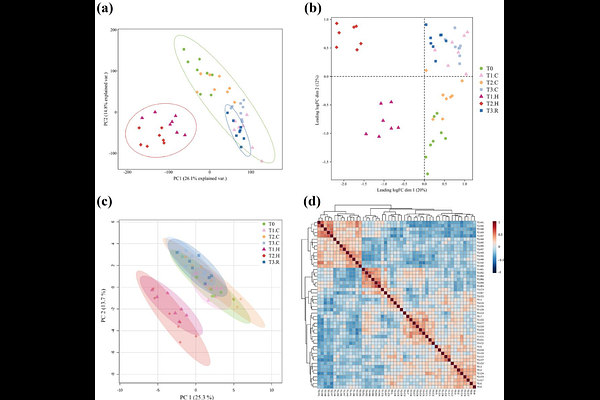Thermotolerance in Chia (Salvia hispanica L.) is Mediated by Rapid Heat-Induced Transcriptomic Reprogramming and Lipid Remodelling in Leaves

Thermotolerance in Chia (Salvia hispanica L.) is Mediated by Rapid Heat-Induced Transcriptomic Reprogramming and Lipid Remodelling in Leaves
Zare, T.; Kehelpannala, C.; Bhatnagar, A.; Rupasinghe, T.; Ebert, B.; Fournier-Level, A.; Roessner, U.
AbstractHeat stress poses a significant threat to crop productivity; however, the thermotolerance mechanisms in underutilised oilseed crops, such as chia (Salvia hispanica L.), remain poorly understood. Despite the growing interest in chia as a rich source of omega-3 fatty acids, its molecular response to heat stress, particularly in vegetative tissues, has not been explored. We conducted transcriptomic and lipidomic profiling to examine how chia leaves respond to short-term (3 h) and prolonged (27 h) heat stress, followed by recovery under ambient conditions. Heat stress induced differential expression in over 20% of transcripts in chia leaves, with distinct patterns involving Ca2+ signalling, heat shock factors, and other biological pathways contributing to cellular homeostasis. Gene expression and lipid profiles in chia leaves responded dynamically to both short-term (3 h) and prolonged (27 h) heat stress (38 C/20 C). An almost complete return to baseline was observed, with all but 0.3% of heat-responsive genes reverting to control expression levels after 24 h. Our analysis confirms the role of Ca2+ mediated signalling pathways and molecular chaperones, including heat shock proteins and heat shock factors, which have been previously shown to contribute to maintaining cellular function during heat stress in other plant species. Among 287 annotated lipid species, TGs exhibited the most significant and reversible changes (>2-fold), suggesting their involvement in membrane remodelling. Our findings reveal adaptive mechanisms in chia that may open avenues for enhancing thermotolerance in other heat-sensitive oilseed crops.